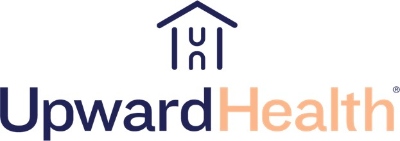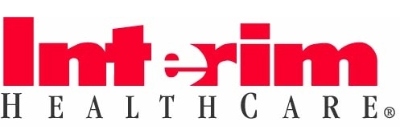About Job
TITLE: SCHOOL COUNSELOR FLSA: Exempt
QUALIFICATIONS: Certification in school counseling as prescribed by the Board of Elementary and Secondary Education
REPORTS TO: School Principal or his or her designee
JOB GOAL: To contribute to the development of the total student by supporting a focus on academic, personal/ social, and career development so they achieve success in school and are prepared to lead fulfilling lives as responsible members of society.
TERMS OF EMPLOYMENT: Ten Months
SALARY: Ten Month Teacher Salary Schedule
PERFORMANCE RESPONSIBILITIES:
1. Establish and implement a comprehensive school counseling program effectively as measured by the counselor evaluation system in accordance with federal and state regulations and the district’s Personnel Evaluation Plan.
2. Assume responsibility for growth in student learning in the assigned area of responsibilities.
a. Ensure that student growth is continuous and appropriate for assigned students.
b. Develop and meet two yearly goals which positively affect student achievement through job responsibilities.
3. Set counseling goals, develop action plans, and monitor progress toward goals.
a. Collect and analyze student data from various sources (e.g., academic records, attendance reports, discipline records) to identify trends to inform counseling goal setting and action plans.
b. Develop counseling goals and action plans that are aligned with identi?ed gaps in one or more of the following: student achievement, attendance, discipline, college and career planning, crisis intervention, and/or social development.
c. Monitor progress toward counseling goals and adjust support strategies in action plans as needed, demonstrating ?exibility in response to changing student needs.
4. Support students in meeting academic and behavioral expectations.
a. Identify student needs and collaborate with other professional staff members in assessing students and developing plans to address mental health, behavioral and learning problems, using an assessment tool when necessary to determine students’ academic and/or social/behavioral needs to identify support for students.
b. Provide support for students experiencing academic and/or behavioral challenges.
c. Assist students in setting academic and/or behavioral goals to establish educational plans.
i. Provide conflict resolution and mediation support.
1. Mediate conflicts between students or between students and staff.
2. Teach conflict resolution skills to help students manage interpersonal conflicts constructively.
ii. Provide academic counseling:
1. Assist students in course selection based on their abilities, interests, and future goals.
2. Monitor students’ academic progress and intervene when necessary to address issues.
3. Ensure students are on track to meet graduation and TOPS requirements based on diploma type, pathway, and credentials.
4. Provide guidance on study skills, time management, and academic planning.
5. Ensure students meet required deadlines, e.g. FAFSA submission, college applications, college admissions testing registration deadlines.
d. Conduct individual and group counseling sessions with students to address identi?ed concerns and challenges.
e. Respond to immediate and urgent concerns, such as emotional crises or traumatic events, emergencies, or incidents affecting the school community.
i. Implement crisis intervention strategies and coordinate with administrators, teachers, and external agencies to ensure appropriate support and safety measures are in place.
ii. Provide support and resources to students and families during times of crisis or trauma.
5. Provide educational and career guidance to students, including but not limited to the following:
a. Provide guidance on course selection, college admissions, career exploration, and post- secondary options.
b. Conduct career assessments and facilitate discussions to help students explore career interests and develop career readiness skills.
c. Organize college fairs, career days, and workshops to enhance students’ awareness of educational and career opportunities, including a diverse range of post-secondary institutions and career options.
6. Coordinate and provide school-wide student support services efficiently and effectively.
a. Coordinate and provide student support using available data and resources.
i. Identify and facilitate lessons and/or sessions that are relevant, engaging, and developmentally appropriate for students to ensure impact on students’ overall development and growth.
ii. Collect and use available student data to determine trends and patterns to document impact and inform next steps.
iii. Engage with school leaders, teachers, and other support staff to support their implementation of identi?ed next steps in daily practices.
b. Determine students’ needs and implement targeted support plans.
i. Use data sources to demonstrate a need for change school-wide (e.g.,discipline, attendance, achievement).
ii. Conduct needs assessments to design action plans for support, instruction, and intervention.
iii. Implement student support plans that include tailored interventions that are aligned to identi?ed needs (e.g., discipline, attendance, course enrollment patterns, achievement, opportunity, academic, mental health and well-being, career support) to enhance students’ overall self-development, academic achievement, and resilience.
iv. Create lesson plans/counseling sessions that are aligned to students’ well-being, and/or academic needs, providing opportunities for differentiation that accommodate various learning styles.
c. Organize and manage time and student records effectively.
i. Prioritize and manage the allocation of time to optimize opportunities to address the needs of all students (e.g., use of calendars, meetings, lessons, deadlines).
ii. Organize accurate records of counseling activities.
iii. Maintain complete and accurate student documentation, including records of behavior, academic performance, relevant communication with parents, and student progress.
iv. Maintain a physical office environment using an organizational system that is designed to support all students, with supplies, equipment, and resources accessible to aid students in their educational, vocational, personal, social, health, and civic development.
v. Perform various administrative duties such as responding to emails and phone calls from parents, school administrators, and staff in a timely manner.
vi. Prepare and submit required reports as assigned by the School Principal.
d. Exert every effort to provide clear and timely information at regular intervals to parents, caregivers, and colleagues regarding school expectations, student progress, student conduct, and ways they can assist student learning and behavior. Be available for parent-teacher conferences.
i. Ensure parents/guardians are notified about students’ post-secondary education and career options based on students’ selected diploma type, pathway, GPA, and standardized test scores.
7. Collaborate and engage with school personnel and all stakeholders effectively.
a. Collaborate with the school leadership team, teachers, and other agencies as appropriate to address student needs (e.g., academic, well-being, and/or physical) by participating in activities which may include, but are not limited to, planning meetings, professional learning community meetings, grade-level meetings, staff development, and various committees.
b. Consult with fellow school personnel and community resources, as appropriate, before making a referral to ensure a comprehensive understanding of the student’s situation.
c. Collaborate with families, teachers, school leaders, other school staff, and education stakeholders to positively impact the success of students.
d. Discuss and provide documentation of progress toward school and student goals with school leaders, teachers, and students.
e. Establish partnerships with relevant agencies and post-secondary institutions.
f. Attend teacher collaboration meetings and provide school counseling information (e.g., attendance records, discipline records, achievement data) during teacher collaboration.
8. Collaborate with the School Principal and colleagues to generate the master schedule annually.
9. Serve on special committees (e.g., 504, Student Well-Being, SBLC, Pupil Progression/IAIP, Crisis, Dyslexia)
as required by the School Principal or district administration and perform related work as required.
10. Plan and oversee assigned events as required by the School Principal, e.g., graduation ceremonies, ring ceremony.
11. Coordinate standardized testing and assessment schedules, ensuring compliance with state and district regulations.
12. Assist school administration in implementing all policies and rules governing student conduct and effective school operation.
a. Monitor student conduct throughout the school building and grounds and enforce all policies and rules governing student conduct.
b. Assist administrators and other staff members in the orderly, expedient and safe transition of students from one location to another.
13. Take all necessary and reasonable precautions to protect students, equipment, books, materials, and facilities.
14. Attend after-school events as scheduled, including but not limited to in-person faculty meetings, parent/family night events, and after-school athletic and special events duty as assigned.
15. To carry out the Performance Expectations and Indicators for Counselors as outlined in Bulletin 130:
A. Counseling Program Vision, Strategic Goal Setting, and Action Planning
1. Development and Communication of Vision
2. Goal Setting, Action Planning, and Monitoring
3. Expectations
B. Student Services
1. Student Support and Data Collection
2. Meeting Students’ Needs
3. Organization and Management of Time and Student Records
C. Leadership, Advocacy, and Reflection
1. Leadership and Advocacy
2. Reflective Practices
D. School Community and Engagement
1. Collaboration with School Personnel
2. Collaboration with All Stakeholders
A. Professionalism and Integrity
1. Professional Behavior
2. Integrity
3. Confidentiality
PROFESSIONAL RESPONSIBILITIES:
1. Maintain professional personal appearance and demonstrate respect for colleagues.
2. Attend work regularly; report to work on time; and provide advance notice of need for absence.
3. Complete work efficiently and accurately (with few/no errors) within deadlines without supervision.
4. Perform job responsibilities consistently, use time wisely, plan properly, take care of materials and equipment.
5. Maintain confidentiality and demonstrate trustworthiness; exercise good judgment.
6. Support, implement, assist with, and/or ensure application of district initiatives and other programs or directives of the Superintendent and Board.
7. Keep direct supervisor informed of the progress being made in area(s) of responsibility.
8. Report to the Rapides Parish School Board as needed or directed.
9. Keep abreast professionally by attending local, regional, state, or national meetings and/or staff development that address area(s) of responsibility as directed by supervisor.
10. Complete and submit all forms, reports, documentation, and trainings by required dates and in accordance with district policies and procedures.
11. Remain open to suggestions and innovative ideas; receive and apply feedback.
12. Demonstrate competence in areas of responsibility.
13. Exert every effort to constructively involve stakeholders in all professional settings.
14. Communicate appropriately and work effectively with all populations.
15. Exhibit desirable qualities such as commitment to job responsibilities, enthusiasm, cooperation, sense of humor, creativity, tact, positive attitude/work ethic, dependability, punctuality, self-discipline/control, poise, voice control, effective nonverbal communication, a professional appearance, initiative, and a genuine concern and interest for others.
16. Follow the specific requirements established by the School Board (LEA), State Department of Education (LDOE), the State Board of Elementary and Secondary Education (BESE), and/or Federal regulations and guidelines established by each.
17. Perform any duty, not specifically assigned, as deemed necessary by the assigning authority in order to maintain continuity where needed.
18. To follow Federal, State, School Board and school policies
Professional Field
 Counseling
Counseling Other Behavioral, Mental, or Healthcare Field
Other Behavioral, Mental, or Healthcare Field








